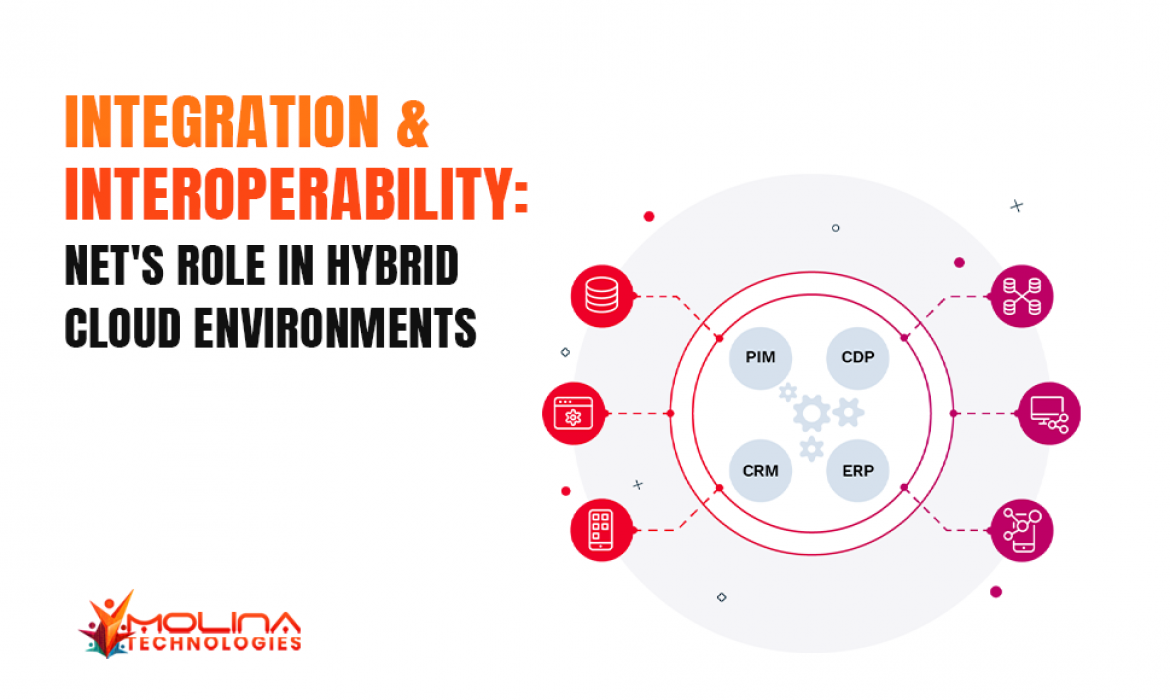
The modern IT landscape is a sprawling sky, dotted with constellations of on-premises data centers, public cloud services, and edge computing nodes. Each offers distinct advantages, but navigating seamless communication between them can feel like scaling. This is where .NET, the versatile developer platform from Microsoft, steps in, offering a lifeline for businesses seeking to integrate and achieve interoperability in their hybrid cloud environments.
A Tale of Two Worlds: The Rise of Hybrid Clouds
Gone are the days of siloed data centers. Businesses today leverage a hybrid approach, strategically distributing their workloads across on-premises infrastructure, public clouds (like Azure, AWS, or GCP), and edge computing solutions. This strategy allows them to reap the benefits of both worlds:
- On-premises data centers offer robust security and control for sensitive data.
- Public clouds deliver unparalleled scalability, pay-as-you-go models, and access to cutting-edge technologies.
- Edge computing brings processing power closer to the data source, minimizing latency and enabling real-time decision-making.
However, this distributed approach wrenches the integration and interoperability equation. Data needs to flow seamlessly between systems, regardless of location or vendor. Here’s where .NET shines.

The .NET Advantage: A Universal Language in a Fragmented Sky
.NET offers a compelling value proposition for building applications in hybrid cloud environments. Let’s delve into its key features that bridge the gap:
- Cross-Platform Compatibility: Developers rejoice! .NET applications can run on a variety of platforms, including Windows, Linux, macOS, and Docker containers. This eliminates the need to rewrite code for different environments, saving time and resources. Imagine building an application that seamlessly connects your on-premises SQL Server database with an Azure-based data analytics service – .NET makes it possible!
- Rich Ecosystem of Libraries and Frameworks: .NET boasts a vast, ever-growing library of pre-built components and frameworks. Developers can leverage these tools to expedite development, ensuring applications adhere to industry standards and best practices. This ecosystem empowers them to focus on core functionalities and innovation rather than reinventing the wheel.
- Language Independence: Don’t get locked into a single programming language. .NET supports various languages, including C#, F#, VB.NET, and even JavaScript (.NET Core). This flexibility allows businesses to leverage developer expertise and preferences, fostering a more productive environment.
- Security at the Forefront: Security is paramount in today’s connected world. .NET prioritizes security throughout the development lifecycle. Features like built-in authentication and authorization tools, coupled with secure coding practices encouraged by the .NET framework, empower developers to build robust and secure applications.
Real-World Applications: How .NET Bridges the Gap
Let’s explore some concrete scenarios where .NET shines in hybrid cloud environments:
- Modernizing Legacy Applications: Many businesses still rely on legacy applications residing in on-premises data centers. .NET can be instrumental in migrating and modernizing these applications for the cloud. Tools like ASP.NET Core allow developers to leverage the power of cloud-native features while maintaining compatibility with existing codebases.
- Building Microservices Architectures: Microservices architectures are a popular choice for building scalable and agile applications. .NET, with its focus on interoperability and containerization, is a perfect fit for developing microservices that can be deployed across different cloud environments. Imagine a hybrid cloud application where the user interface runs on a public cloud for scalability while the backend logic resides securely in an on-premises data center – .NET facilitates this seamlessly.
- Creating Hybrid Data Pipelines: Data is the lifeblood of modern businesses. .NET enables the creation of robust data pipelines that can efficiently collect, transform, and integrate data from various sources, regardless of location. For instance, a . NET-based application can ingest data from an on-premises CRM system, process it in an Azure-based data warehouse, and then visualize the insights back on a web dashboard accessible to employees across the globe.

Beyond Integration: The .NET Symphony’s Encore
.NET’s role in hybrid cloud environments extends beyond just facilitating integration. Its robust features and extensive ecosystem offer additional benefits that contribute to overall success:
- Developer Productivity: With its focus on code clarity and strong tooling support, .NET empowers developers to work efficiently and deliver applications faster. This is particularly beneficial in hybrid cloud environments, where managing distributed codebases can be challenging.
- Security: .NET prioritizes security with built-in authentication, authorization, and encryption features. This is crucial in hybrid cloud deployments, where data security across diverse environments is paramount.
Large Talent Pool: .NET boasts a vast and active developer community. This abundance of skilled professionals allows organizations to tap into a readily available talent pool when building and managing hybrid cloud applications.
.NET: The Indispensable Conductor for Hybrid Cloud Success
In a world of fragmented data and diverse platforms, the ability to integrate seamlessly is no longer a luxury; it’s a necessity. .NET, through its cross-platform capabilities, rich toolset, and commitment to developer productivity, emerges as the ideal conductor for integration within hybrid cloud environments. By bridging the gaps between on-premises and cloud-based resources, .NET allows organizations to leverage the best of both worlds, fostering agility, scalability, and cost-effectiveness. So, as you build your hybrid cloud strategy, consider .NET as the maestro for your integration symphony. With its proven capabilities and ever-evolving suite of tools, .NET ensures your applications sing in unison, delivering a harmonious and successful hybrid cloud journey. MolinaTek gives you that edge in this hay; explore its benefits today by visiting our websites.

